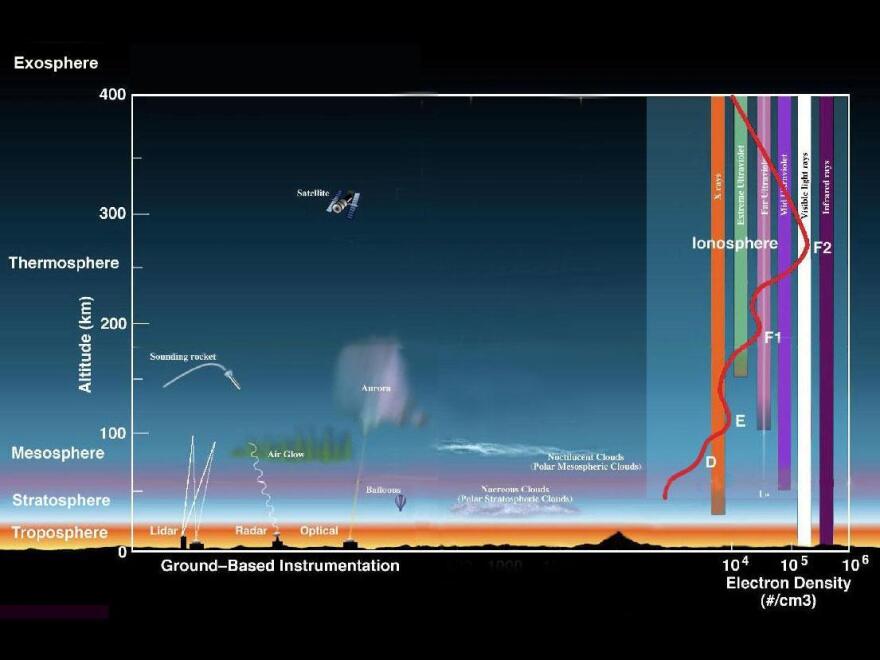Scientists say volcanoes impact global warming on a non-human scale — meaning the change is too slow to observe in one’s lifetime.
Billions of years ago when earth was a boiling cauldron of volcanoes and exploding gases, huge amounts of carbon dioxide were released, trapping heat as land masses formed.
However, today the effect of volcanic emissions on the environment pales in comparison to that of human activity. In fact, recent large volcanic eruptions have been shown to have a significant cooling effect, at least temporarily, on the atmosphere.

"In 1991 Mount Pinatubo caused about a 1.3 degrees Fahrenheit cooling. Also, an eruption in the 1700s in Iceland released a significant amount of sulfur dioxide and caused global cooling," said Caroline Tisdale, a volcano researcher at the University of Hawaiʻi at Mānoa.
Volcanic eruptions can cause a short period of global cooling if it releases enough sulfur dioxide (the main gas in vog) into a layer of the atmosphere called the stratosphere. The sulfur dioxide helps reflect the heat emitted by the Sun away from Earth.
If the eruption happened closer to the equator, global cooling can happen in both the northern and southern hemispheres.
The eruption from Mount Pinatubo in the Philippines was close enough to the equator to cause a global cooling that lasted for roughly two years.

While volcanoes have little to no long-term effects on today’s climate change, human-emitted carbon dioxide can impact volcanoes.
Kenneth Rubin, a professor of volcanology and geochemistry at UH Mānoa, says climate change can have an effect on the amount of gas volcanoes emit.
"Every year, even when they’re not erupting, volcanoes emit a lot of gases into the atmosphere. And those gases come from two sources. One of them is deep in the Earth, and the other one is primarily from water," he said.
"Climate change has already induced changes in groundwater around the globe. That ultimately affects the amount of gases emitted by volcanoes when they’re not erupting. When they’re erupting, the gas that comes out is primarily this deeper gas that is probably not affected by climate," Rubin said.
Rubin says the bottom line is that the amount of gases produced from volcanoes is negligible compared to human-emitted greenhouse gases.
"It’s kind of a slow, more longer term process. It might be important for future generations, but it’s probably not one of the main immediate concerns right now. There are so many other things happening with both human land-use practices and fossil fuels and so forth that contribute much much more and at much faster rates than volcanoes," Rubin told Hawaiʻi Public Radio.





